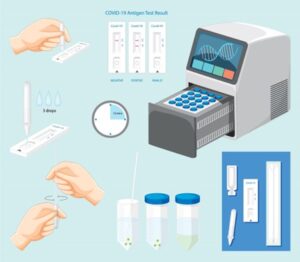Last updated on December 28th, 2024 at 12:02 pm
In the realm of healthcare and medicine, precise measurements and conversions are crucial for accurate diagnosis, treatment, and research. Medical conversions play a pivotal role in this process, ensuring that medical professionals can effectively communicate and interpret measurements regardless of the unit system being used.
Medical Conversions Meaning
It refers to the process of converting measurements from one unit of measurement to another within the context of healthcare and medicine. The need for modifications arises due to the existence of multiple measurement systems, such as the metric system (SI units) and the imperial system, and the global nature of medical practices.
The accurate interpretation of measurements is crucial to ensure proper patient care, accurate drug administration, and valid research outcomes.
Significance of Medical Conversions
The significance of Medical Conversation is evident in various aspects of healthcare:
- Clinical Practice: Medical professionals need to convert measurements for patient assessment, diagnosis, and treatment. For instance, converting a patient’s weight from pounds to kilograms or height from inches to centimetres is essential for determining appropriate drug dosages and assessing growth.
- Drug Administration: Medication dosages are often specified in one unit system, but healthcare providers might be accustomed to another system. Converting dosages accurately ensures that patients receive the correct amount of medication.
- Laboratory Testing: Medical tests might yield results in different units. Converting these results ensures consistency and facilitates accurate interpretation by healthcare professionals.
- Research and Publications: In medical research, global collaboration is common. Converting measurements to a universally understood unit system ensures the clarity and consistency of research findings.

Read: What are Generic Medicines?
Medical Conversation Examples
Here are some examples that highlight the practical applications of medical conversions:
- Temperature Conversion: Converting a patient’s body temperature from Fahrenheit to Celsius or vice versa is vital for assessing fever or hypothermia accurately.
- Weight Conversion: Converting a newborn’s weight from grams to pounds or an adult’s weight from kilograms to pounds is necessary for determining proper dosages and monitoring nutritional needs.
- Height Conversion: Converting a person’s height from centimetres to feet and inches is crucial for clinical evaluations, such as assessing growth charts for children.
- Blood Pressure Conversion: Converting blood pressure readings from millimetres of mercury (mmHg) to other units helps ensure consistency in patient records and research data.
- Lab Results Conversion: Converting laboratory values such as blood glucose levels from milligrams per deciliter (mg/dL) to millimoles per litre (mmol/L) allows for better comparison and interpretation of results.

Conclusion:
Medical Conversation play a pivotal role in the accurate interpretation of measurements within the healthcare and medical field. They facilitate clear communication among healthcare professionals worldwide and contribute to improved patient care, effective drug administration, and reliable medical research. Understanding the meaning and examples of Medical Conversation underscores their importance in ensuring the precision and consistency of medical practices across different unit systems.
> Consult a Doctor and Medkart will help you Order Medicines Online
FAQs on Medical Conversions
Q1: What is medical conversion?
Medical conversions refer to the process of converting measurements from one unit of measurement to another within the context of healthcare and medicine.
Q2: How many millilitres are there in a teaspoon?
There are approximately 5 millilitres (ml) in a standard teaspoon.
Q3: What are some common measurement systems used in medical conversion?
Medical professionals often work with the metric system (SI units) and the imperial system. Converting between these systems is a common application of medical modifications.
Q4: How does medical conversion impact medication dosages?
Medication dosages might be specified in one unit system, but healthcare providers might use a different system. Accurate conversions ensure patients receive the correct dosage based on their weight and other factors.
Related Links: